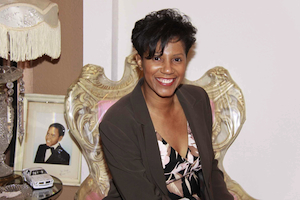TIM, Making Money, Sherice L Bellamy, Educator & Entrepreneur
The decision to start a business poses several questions.
- Do you start a new business?
- Do you buy an existing business?
- Or do you invest in a franchise?
While each option has its advantages and disadvantages, many are choosing to invest in a franchise, which allows individuals to establish a business based upon a proven system of success, drawing upon the franchiser’s experience and continuous support.
WHAT IS A FRANCHISE?
A franchise is a system of distribution in which a franchisee pays fees and royalties to the franchisor in return for the right to use its trademark, sell its products or services, and to use its business format and system.
There are three basic types of franchises:
Trade-name franchising gives the franchisee the right to use the franchiser’s trade name without the restriction of distributing particular products exclusively under the franchiser’s name;
Product distribution franchising involves a franchisor licensing a franchisee to sell specific products under the franchiser’s brand name and trademark through a selective, limited distribution network; and
Pure franchising (the most common form of franchising) provides the franchisee with a complete business format, including license for a trade name, the products and/or services to be sold, the physical plant, the methods of operation, a marketing strategy plan, a quality control process, two-way communication system, and the necessary business services.The franchisee purchases the right to use all of the elements of a fully integrated business operation.
While the most visible and recognizable franchises are fast-food restaurants, the IFA Education Foundation’s 2004 report on the economic impact of franchising states that franchise opportunities exist in almost every industry and at every price range imaginable.There are franchises available for as little as $10,000; 70% have an initial franchise fee of $30,000 or less; 75% have a total start-up costs of $250,000 or less; and 40% have a total start-up costs of $100,00 or less.At the time of this report, there were more than 760,000 franchised businesses in the U.S., providing jobs to almost 10 million Americans.
For a complete list of industries and the types of franchises available, refer to the directories located at www.franchise.org, www.franchise1.com and www.worldfranchisng.com.You may also use these resources to find a franchise consultant in your area, or contact The Entrepreneur’s Source or the International Franchise Association for help with securing the type of franchise that best fits your interests and expertise.
ADVANTAGES AND DISADVANTAGES OF FRANCHISING:
Advantages:Disadvantages:
- 1.Proven Business System vs. Lack of Freedom and Control
- 2.Brand Name Appeal vs. Payment of Fees and Royalties
- 3.Economies of Scale vs. Restrictions on Purchasing
- 4.National Advertising Program vs. Strict Standardized Operations
- 5.Training and Support vs. Limited Product Line
- 6.Ongoing Research and Development vs. Company Image Affected By Others
- 7.Site Selection Assistance
- 8.Easier to Obtain Financing
- 9.Reduced Risk of Failure
CRITERIA FOR SELECTING A FRANCHISE:
Though the franchise option often reduces the risk factor associated with starting a new business, it does not eliminate risk altogether.After assessing one’s own interests, skills and experience, determining the type of business and narrowing your franchise options, a thorough research and evaluation of each franchise of interest is advisable.A prospective franchisee should:
Research the market and demand for the products/services.
Evaluate the franchise’s history.
Carefully study the Uniform Franchise Offering Circular (UFOC).
Review the franchise Agreement.
Interview existing franchisees and those that have left the system.
Visit the franchiser’s headquarters.
Consult the advice of an attorney and an accountant that specializes in franchises.
Consider the potential for future growth.
AN EXPERIENCED FRANCHISEE:
Experienced franchisee, Fayaz Karim, a Franchise consultant, Business broker, and a 20-year franchise veteran with Subway, is currently a licensed Area Developer with Extreme Pita.He opened the first Subway franchise in South Africa, leading to stores in Tanzania, Zambia, Zimbabwe, Morocco and Egypt.Born in Uganda, Karim states, “As an immigrant, and seeing the success of others, I suggest you take on a franchise for reduced business risk, greater support and direction, and an ability to grow within that system with multi-unit ownership opportunities.By then you are managing people and maintaining control systems, not necessarily doing the daily work.”
He can be reached at 949-253-4610, fayazk@extremepita.com
Sherice L. Bellamy, SLB Associates, provides business planning and development services to small businesses and entrepreneurs.
REFERENCES:
Beshel, Barbara (2001).An Introduction to Franchises, The IFA Education Foundation,
Sponsored by the Pepsico Foundation.
Zimmerer and Scarborough (2005).Essentials of Entrepreneurship and Small Business
Management, New Jersey, Pearson Prentice Hall, 4th Edition, 2005.
The International Franchise Association, 2006 Franchise Opportunities Guide.








